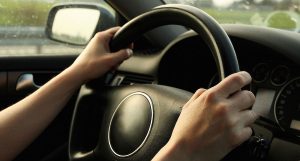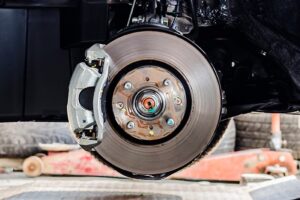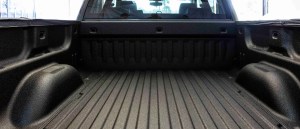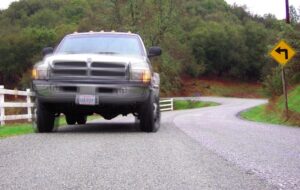The most common complaint about brakes is “my brakes squeak.”. Brake noises can be annoying but can also indicate a potentially dangerous issue.
Here’s a look at some of the most common brake noises and how they can be repaired.
Table of Contents
Squeaking Noise While Braking or Driving
Squeaky brakes can be very annoying, but they can also indicate something important. They may indicate danger, or they could be the result of low-quality brake pads.
Buying Cheap, Low-Quality Brake Pads Is The Most Common Cause
Cheap brakes sound good when you pay for them, but they can lead to years of painfully annoying squeaking. Most often, brake squeaking is caused by inferior pads. When you press the brakes lightly, and a flake drags along the rotor when you press the brakes lightly, cheap brake pads will squeak as a result of the large metal flakes in the brake material. When a particular flake wears away, the squeak may disappear, but usually, there is another one right behind it. By choosing quality brake pads, you can avoid this type of noise.
Suppose I Don’t Brake When I Hear the Squeaking While Driving?
If your brakes are squeaking or squealing while driving, but the noise goes away when you press on the brakes, your brake wear indicator could be hitting the rotor.
As the brake pads wear down and need to be replaced, the wear indicator drags along the rotor, warning the driver of the potential problem.
How to Fix It
Don’t ignore the noise for too long for your safety and to protect the other parts of the braking system. The brake pads are thin and need to be replaced soon.
Thumping or Squealing Caused by Rotors Rusting Overnight
Especially in cars parked outside, rust can build up on the rotor overnight, causing the car to thump or squeal as you drive away.
When turning or driving, a scraping noise is heard
Another noise comes from the rotor area, which technically has nothing to do with brakes. However, it is worth mentioning because people assume it is their brakes causing the noise.
When driving or turning a corner, your vehicle makes a scraping noise that resembles something being dragged across a tin plate. You might have picked up a rock on a dirt road or from a freshly repaired pothole—the kind of place that leaves a shower of pebbles on the bottom of your car. A rock may have lodged between the rotor and the backing plate, causing the awful sound you hear.
Additionally, sometimes the backing plate behind the rotor gets bent when the car is being worked on, causing it to scrape against the rotor.
How to Fix It
If the problem is a bent backing plate, get it un-bent, so it doesn’t scrape against the rotor. Removing a rock stuck behind the rotor is easier if the backing plate is bent.
Other Noises: Grinding Noise When Brakes Are Applied
A grinding noise when applying brakes is comparable to hitting a rumble strip on the edge of the highway; if you hear that, you need to stop! It is common for brake pads and rotors to grind when there is no braking material left; the pads and rotors have become metal to metal.
Why Do Brake Pads Wear Down?
When brake pads wear out, they need replacement, and you have to spend a little money. Imagine dollar signs rising into the air every time you step on the brake pedal, even just a little, if you don’t do it, and your brakes grind to the point of grinding.
How to Fix it
You should call a towing company if your brakes are grinding. A replacement of your brake pads may be all you need. You must replace them regularly, so your rotors don’t grind down to a tissue. If you replace your pads regularly, your rotors can often be kept. If you have been braking and driving despite grinding noise for a while, you will probably need to replace your rotors.
Other Noises: Thumping Noise From the Rear When Braking
A brake problem like this can irritate a driver and drain a technician’s life. It can take some time to figure out what is causing the thumping noise in the back of a car. The noise can be the rear drums, but it often takes a long time to come to that conclusion.
What Are Drum Brakes?
A shoe presses on a metal drum inside the car in drum brakes to stop it. Brake drums, like rotors, need to be resurfaced every so often. On the brake lathe, a cutting bit removes the old braking surface to give you a new mating surface.
What Causes the Thumping Noise?
The brake shoes will follow the groove when riding on the new surface, just as a record player needle does. You may wonder if you can drive your car if the groove is interrupted, resulting in the shoes snapping back and hitting the backing plate.
Frequently Asked Questions about Brakes, Brake Noises, and Brake Parts
There are several common questions about brake noises that are answered in this section.
What Can I Do To Stop My Brakes From Squeaking?
Squeaking brakes are usually fixed by removing all the brake pads, disassembling the calipers, applying grease to all moving parts of the calipers, and applying brake pad lube to all contact points between the caliper and brake pad.
Other methods can be used as well as sanding the brake pad surface and shaving the leading edge off, but the repair above produces the best results.
Why Are My Brand-New Brakes Squealing?
An inexperienced mechanic will most likely have neglected lubricating the contact points between the brake pads and the caliper.
New brakes may also squeak if they contain a high amount of bi-metal material.
What If the Braking System is Making a Grinding Noise?
During the last few months of a brake pad’s life, a grinding noise can be heard in the brake system (when the brake pad is worn out).
After applying the brakes a few times, moisture on the brake rotor will usually disappear, adding to the grinding in a brake system.
Brake grinding also occurs when small pebbles get caught between the rotor and rotor backing plate, when the backing plate touches the rotor after a brake service, or after the wheels have been removed from the vehicle.
How Much Does It Cost to Get a Brake Job?
The cost of a brake job can range from $150 to $650 per axle, depending on what needs to be replaced. The brake job will be more expensive if your vehicle requires new pads and rotors.
When the mechanic tells you that you need to replace your rotors, ask them if they can resurface them to save you money. If they can, you could actually save about $100 to $150.
How Much Does It Cost to Fix Squeaky Brakes?
Squeaky brakes can cost anywhere from $250 to $300 depending on labor rates and what the mechanic needs to do. The brake calipers will need to be disassembled and lubricated, which takes about 60-90 minutes.
What Causes My Brakes to Squeak First Thing in the Morning?
The most common cause of brake squeaks first thing in the morning (or after an extended period of sitting in a humid area) is moisture on the brake rotors.
Can Brakes Squeal When They’re Not Applied?
There are times when your brakes squeal when you are not applying the brakes. This usually happens when the brake-pad-wear indicator touches the rotor. When the wear indicator touches the rotor, sometimes the noise disappears when the brakes are applied, but it returns when your foot is lifted off the pedal.
It might signify that your brake pads are getting low and need to be replaced. If you hear this type of noise when you’re not applying the brakes, have a mechanic inspect your brakes.
Is There a Reason My Car Squeaks While Driving, But Stops When I Brake?
It is most likely that the brake wear indicator is touching the rotor’s surface when your brakes squeal continuously while you drive along the road, but the squealing stops when you step on the brake pedal.
What Causes Squealing Noise While Driving?
Generally, squealing sounds are caused by loose or worn belts, an old or failing alternator, or a car’s steering system. Getting your brakes serviced is their friendly way of telling you to get them serviced. If your car squeaks or squeals as you turn the steering wheel, it’s the steering system.
What Does a Loose Caliper Sound Like?
If your brake pads are rubbing against the rotor (the round part of your wheel), you might hear a slight screech. They may pull toward a caliper that won’t release or wander away from one that won’t grab. You might notice the vehicle pulling to one side when you don’t brake if you take your hands off the steering wheel (although that could also be a sign to replace your tires).
How Do I Get Rid Of A High-Pitched Squeaking Noise From My Car?
You may have a loose or worn fan belt if you hear a loud squeal when accelerating, especially when your car is warming up. If your fan belts are worn, you might need to replace your timing belt. The sound is normally not due to worn brake pads but rather to worn fan belts.
Do You Have to Break in New Brake Pads?
As soon as the brake pads are installed, you should be able to drive normally without breaking them in.
What Causes a Grinding Noise While Driving?
Having a grinding noise while driving may mean your brake pads are worn metal-to-metal. You should get your brakes checked ASAP. They may be worn to nothing, and continuing to drive may be unsafe.
How Do You Check Your Rotors?
The visual inspection checks for flaking rust, scorch marks, heat cracks, and hot spots on the braking surface. A micrometer or vernier caliper is used to measure the braking surface.
A brake inspection should include measuring the rotor thickness. A thin rotor could crack or fall apart under severe braking conditions. It is also important to measure rotor thickness to verify that there is enough material to resurface the rotors.
Car Brakes: How Long Do They Last?
Your brakes could last up to 100,000 miles if you drive on the highway all the time, but if you make deliveries in the city, you might need to replace them every 15,000 miles.
What is the Turnaround Time For A Brake Job?
Generally, a brake job takes about 90 minutes to two hours. If the brakes need to be replaced, they will take about an hour per axle. If the brakes need to be resurfaced or resurfaced, they will take about an hour.
How Often Do You Need to Change Brake Pads?
You can expect your brakes to last up to 100,000 miles if you always drive on the highway. If you make deliveries in the city, you might need to replace them every 15,000 miles.
Some aftermarket brake pads are very cheap and don’t last long. Cheap pads are also very noisy. Another factor to consider is the type of brake pad you’re installing.
Final Thoughts: Is it Safe to Drive a Squeaky Car?
When a brake squeak occurs on its own, it does not indicate danger. If the brakes were overheated at some point, the brake linings could become glazed, resulting in a squeak. Dirt and brake dust on the linings could also result in a squeak. In some cars, the brake pads are equipped with a metal tab that touches the rotor when they are worn out, known as the “squealer.” Your brakes must be inspected by a professional if that is your problem. When your brakes wear down to the steel backer, they can ruin your rotors and turn an inexpensive pad replacement into a costly one. Rotors are not cheap, so get them looked at as soon as possible.




